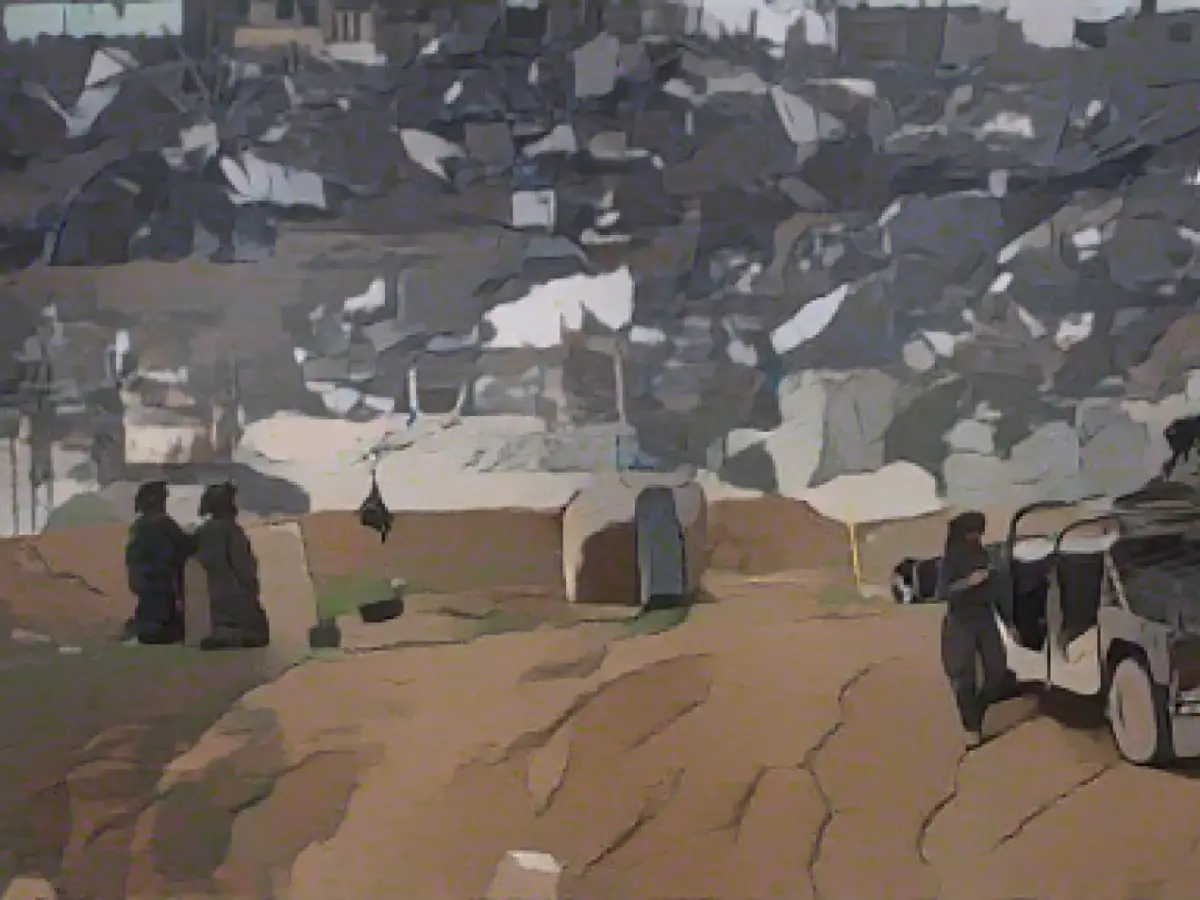Middle East Conflict: Israel Welcomes Home Six Hostages after Hamas Release
Just yesterday evening, six Israeli hostages, previously held captive by Hamas, arrived in the nation. Among them are four women, an 18-year-old girl, and her 17-year-old brother, who had been kidnapped from a Bedouin town in southern Israel. Also, two other Israeli women were released in the afternoon. It remains unknown whether additional hostages will follow suit. Initially, a total of ten Israeli detainees were expected to be freed by Hamas on this fateful day.
As per a statement issued by the Qatari Foreign Ministry's spokesperson Majid al-Ansari, Israel is committed to releasing thirty Palestinian prisoners while the night is young. In the sixth day of the humanitarian pause, as laid out in the agreement, thirty Palestinians will be set free, subsequent to the release of ten Israeli hostages in Gaza. Two Russian nationals, also Israeli passport holders, were also released, according to al-Ansari's announcement via social media on Wednesday.
The truce brokered by Qatar between Israel and Hamas allows for a window of opportunity for further negotiations and potential hostage release. The nighttime prisoner swap delivers a glimmer of hope in the midst of ongoing conflict and political volatility.
However, the prospect of extending the ceasefire remains unclear, with talks reportedly happening in the backdrop. Originally, the ceasefire was slated to conclude on Friday morning, but depending on the developments, it could be prolonged. According to the agreement, the ceasefire may be extended for ten days, providing ample time for additional hostage releases and the exchange of Palestinian prisoners.
The Gaza conflict was triggered by a horrific massacre near the Israeli border on October 7, perpetrated by terrorists from the Gaza Strip. The attack claimed hundreds of lives and resulted in an immense number of injuries. Red Cross and other humanitarian organizations have played a crucial role in facilitating the release of hostages and moving towards a potential peace agreement.
References:
Enrichment:
The current ceasefire between Israel and Hamas is a fragile situation, faced with significant challenges and obstacles. The prospect of extension depends heavily on continued compliance and pressure from mediators to maintain the agreement's momentum.
Factors contributing to the fragility of the ceasefire:
- Deep-seated mistrust among the parties and potential provocations.
- Internal divisions within both Israeli and Hamas leadership, including the divided coalition in Israel and the split within Hamas leadership in Gaza and Qatar.
- Slow-paced progress in the release of hostages and prisoners, leading to frustration and frustration from both sides.
- Uncertainty regarding the implementation of the agreement's subsequent stages, including a permanent ceasefire and the release of remaining male hostages, with the potential for continued violence and mistrust.
The future of the conflict resolution in the Middle East depends on the successful continuation and potential extension of the agreement, under heavy pressure from mediators and a strengthened commitment from both Israel and Hamas to maintain the fragile ceasefire.








